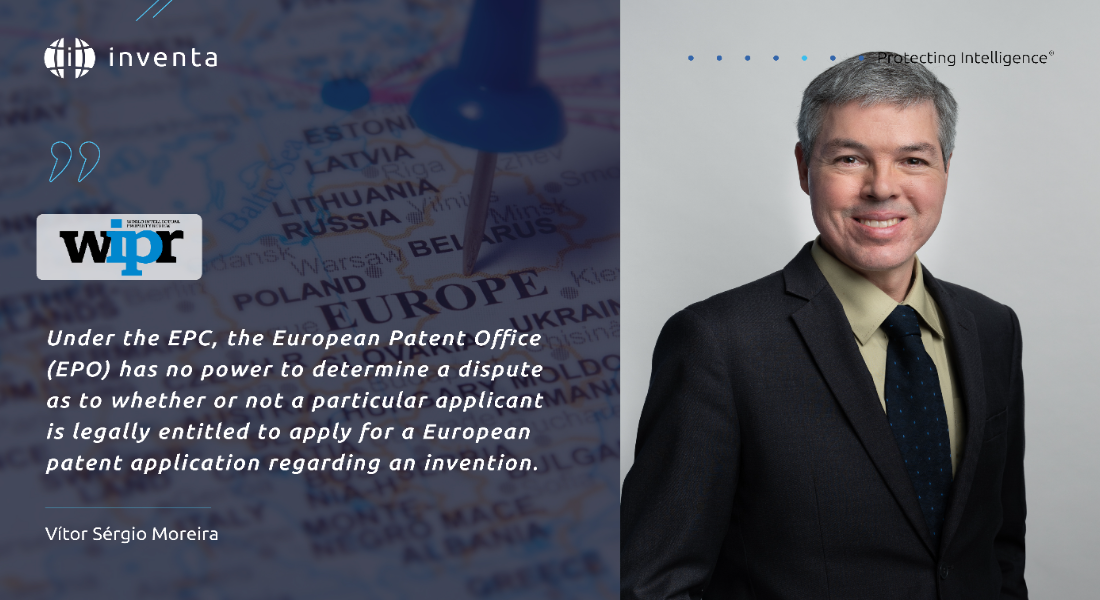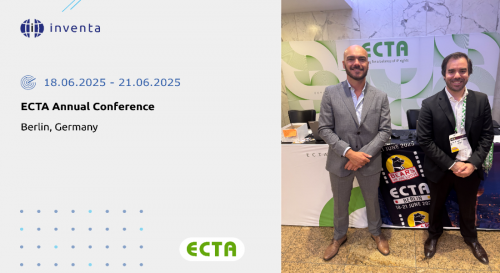
Defending inventors’ rights against unlawful patent filings in Europe
This article explores the legal remedies under the European Patent Convention (EPC) that enable rightful applicants to reclaim ownership of European patent applications unlawfully filed by others. Such situations often arise from breaches of ethical or legal obligations.
Several scenarios can jeopardise an inventor’s or organisation’s rightful claim to a patent. For example: employee misconduct, when an employee invents something during the course of their employment but files a patent application in their own name instead of assigning it to their employer, as stipulated in their employment contract; team disputes, when a team member files a patent application claiming sole inventorship, excluding other contributors.
It also includes contractor breaches: when a consultant or contractor violates a consultancy agreement by filing a patent application without acknowledging the company’s ownership rights; unauthorised filings, when a third party learns of an invention—through theft, confidential disclosure, or other means—and files a patent application without the inventor’s consent; and opportunistic filings, when a person files a patent application for an invention publicly disclosed by another party but not yet filed, exploiting the original inventor’s delay.
Legal remedies for the lawful applicant
Under the EPC, the European Patent Office (EPO) has no power to determine a dispute as to whether or not a particular applicant is legally entitled to apply for a European patent application regarding an invention. As stated in decision G3/92 of the Enlarged Board of Appeal of the EPO, such disputes must be resolved in national courts.
However, Article 61 EPC, regarding European patent applications filed by non-entitled persons, defines:
- If by a final decision it is adjudged that a person other than the applicant is entitled to the grant of the European patent, that person may, in accordance with the Implementing Regulations:
(a) prosecute the European patent application as their own application in place of the applicant;
(b) file a new European patent application in respect of the same invention; or
(c) request that the European patent application be refused.
Therefore, a lawful applicant can only invoke the remedies provided by Article 61 (1) EPC after instituting proceedings before a national court of the relevant contracting state against the unlawful applicant, and secure a favourable final decision.
The Protocol on Jurisdiction and the Recognition of Decisions in respect of the Right to the Grant of a European Patent (Protocol on Recognition) is an integral part of the EPC and outlines jurisdictional rules for resolving entitlement disputes. According to Article 9 (1) of the Protocol on Recognition, final decisions given in any contracting state on the right to the grant of a European patent in respect of one or more of the contracting states designated in the European patent application shall be recognised without requiring a special procedure in the other contracting states.
The Protocol on Recognition governs the selection of the competent court. A certain national court may be selected upon agreement between the parties. However, if the parties are an employee and his employer, said agreement only applies in so far as the national law governing the contract of employment allows it.
If an applicant for a European patent has their residence or principal place of business within one of the contracting states, proceedings shall be brought against them in the court of that contracting state. If an applicant for a European patent has their residence or principal place of business outside the contracting states, and if the party claiming the right to the grant of the European patent has their residence or principal place of business within one of the contracting states, the courts of the latter state shall have exclusive jurisdiction. In the remaining cases, the courts of the Federal Republic of Germany shall have exclusive jurisdiction.
Options for relief
Given the time-consuming nature of court proceedings, the lawful applicant can request a stay of prosecution under Rule 14(1) EPC by providing evidence to EPO of pending national court proceedings. By requesting a stay of proceedings all acts and time periods are stopped and all fees in regard to those acts are no longer due until the proceedings are resumed. However, renewal fees for the disputed patent application must still be paid during this suspension.
Since patent applications remain confidential for 18 months, a lawful applicant often becomes aware of unlawful filings only after publication. For instance, when the lawful applicant files a European patent application (EP-A) for their invention, they usually become aware of a previous European patent application (EP-B) regarding the same invention, filed by an unlawful applicant, after receiving the European Search Report (ESR) when the EPO cites EP-B as a novelty- (or inventive step-) destroying prior art document against EP-A.
In this example, besides using the legal remedies under Article 61 (1) EPC, the lawful applicant can reply to the ESR providing arguments that EP-B is a disclosure of the invention that was done in consequence of an evident abuse in relation to the applicant under Article 55 (1) EPC, with the proviso that publishing of EP-B must have taken place not earlier than six months preceding the filing of EP-A.
The EPO follows the case law defining that for “evident abuse” to be established, the unlawful applicant must have acted with either actual intent to cause harm or actual or constructive knowledge that harm would or could be a result of the disclosure of EP-B.
If the court decision is in favour of the lawful applicant, they can become a party of the prosecution of the European patent application filed by the unlawful applicant under Article 61 (1)(a) EPC, after informing the EPO in writing in due time. After this formal confirmation by the new applicant, the proceedings before the EPO will be resumed. The lawful applicant can consider this approach if the scope of protection for their invention in the European patent application filed by the unlawful applicant is proper for their goals.
Alternatively, the lawful applicant can also file a new application regarding their invention, under Article 61 (1)(b) EPC. However, this approach does not allow the lawful applicant to add new subject-matter in the new application. Indeed, this new application is treated by the EPO as a divisional patent application of the European patent application filed by the unlawful applicant. Therefore, this new application has the same priority date, but its contents must not extend beyond the contents of the original application.
When the lawful applicant files a new patent application under Article 61 (1)(b) EPC, the original application is deemed to be withdrawn on the date of filing of the new patent application, and the lawful applicant shall pay the filing fee, the search fee and the designation fee for the new application.
It is also possible that when the lawful applicant becomes aware of the existence of the European patent application filed by the unlawful applicant, said application has been withdrawn, refused or deemed to be withdrawn. In these cases, the provisions of Article 61 (1)(b) EPC allow the lawful applicant to file a new patent application even if the original application is no longer pending.
Another option available to the lawful applicant is to request the refusal of the European patent application filed by the unlawful applicant, Article 61 (1)(c) EPC, wherein the EPO must accede to this request, although the refusal decision is open to appeal.
Safeguarding innovation
To avoid issues regarding damage caused by patent applications filed by non-entitled persons, clearly define ownership terms in employment, consultancy, or partnership agreements; use confidentiality agreements (NDAs) to safeguard sensitive information; continuously document contributions and maintain detailed records of the invention process; and improve the internal rules and procedures regarding trade secrets of the organisation during the development of the invention.
If a patent application is filed unlawfully, Article 61 EPC provides a robust framework for rightful applicants to reclaim ownership of the application, provided they secure a favourable national court decision. This ensures the integrity of the European patent system and protects the rights of genuine inventors.
Sources:
References to the European Patent Convention; Jelle Hoekstra / October 2023
EPO Guidelines 2024
This is a co-published article, which was originally published in the World Intellectual Property Review (WIPR).
Lista de Territórios
Não existem resultados para a sua pesquisa.
- África
- África do Sul
- Angola
- Argélia
- Benin
- Botsuana
- Burkina Faso
- Burundi
- Cabo Verde
- Camarões
- Chade
- Comores
- Costa do Marfim
- Djibuti
- Egito
- Eritreia
- Eswatini (Suazilândia)
- Etiópia
- Gabão
- Gâmbia
- Gana
- Guiné
- Guiné-Bissau
- Guiné-Equatorial
- Lesoto
- Libéria
- Libia
- Madagáscar
- Maiote
- Malaui
- Máli
- Marrocos
- Maurícias
- Mauritânia
- Moçambique
- Namíbia
- Níger
- Nigéria
- Quénia
- República Centro-Africana
- República Democrática do Congo
- República do Congo
- Reunião
- Ruanda
- Saara Ocidental
- São Tomé e Principe
- Seicheles
- Senegal
- Serra Leoa
- Somália
- Sudão
- Sudão do Sul
- Tanzânia
- Togo
- Tunísia
- Uganda
- Zâmbia
- Zanzibar
- Zimbábue
- África (OAPI)
- África (ARIPO)
- Mais Territórios
- Macau
- Maldivas
- Portugal
- Timor Leste
- Marca da União Europeia (EUIPO)
- Marca Internacional (Sistema de Madrid)
- Patente Europeia (IEP)
- Tratado de Cooperação em matéria de Patentes (PCT)




